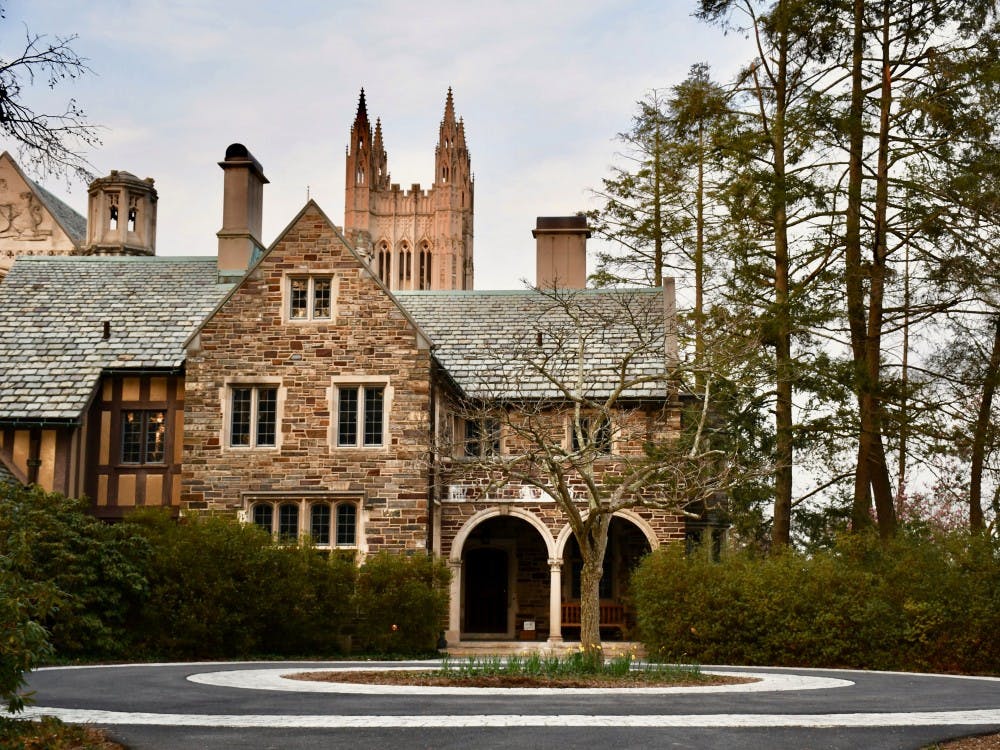In the wake of COVID-19, unavoidable research delays and hiring freezes have left some graduate students, especially those on limited timetables to complete their degrees, concerned for their futures in academia. The Princeton Graduate Student United (PGSU) is now pushing the University to “stop the clock” on graduate students’ studies.
PGSU, which describes itself as “a group of graduate students committed to winning the right and the opportunity to have a say in the terms and conditions of our employment,” circulated a petition earlier this month calling on the University to lengthen all graduate student fellowships, benefits, enrollment statuses, time-to-degree deadlines, and international student support, such as I-20 and DS-2019 forms, by a year.
The petition cites illness, caretaking duties, cancellation of conferences, postponement of publications, and closure of campus facilities, laboratories, libraries and other resources as obstacles to full academic performance this semester.
The petition, which was circulated on social media, had garnered 786 signatories as of the latest update on Thursday, April 23 at 8:23 p.m. For comparison, the University reports a graduate enrollment of 2,946.
In an April 14 memo, Dean of the Graduate School Sarah-Jane Leslie GS ’07 addressed PGSU’s concerns, informing students of ways to request enrollment extensions.
Leslie wrote that she recognized “the impossibility of research to continue this semester for some Ph.D. students.” As such, students who are currently in their last semester of eligibility in Dissertation Completion Enrollment (DCE) status may request a one-semester enrollment extension, or two in “exceptional cases.”
She urged graduate students who have already passed their general exams to “work through your adviser(s) and DGS [Director of Graduate Studies] if you believe your research progress has been significantly impacted and delayed to warrant an extension of funding.”
The University is also working with representatives from the Graduate Student Government (GSG) to aggregate student concerns throughout the process, according to University Spokesperson Ben Chang.
Leslie’s memo, however, left some members of PGSU dissatisfied.
PGSU objects to the University’s plan to request funding through departments on the grounds that doing so could expose graduate students to privacy concerns and difficult interpersonal dynamics.
“[The University is] asking graduate students to write to their advisors with a detailed account of their respective situations, without mind to the personal details that will have to be revealed, and the tensions that such an exchange can generate between advisor and advisee,” wrote Marie Sanazaro GS and Paresh Chandra GS in a statement to The Daily Princetonian on behalf of PGSU.
Other graduate students offered mixed opinions on Leslie’s memo and on the actions taken by the University thus far.

“The language in the email was in some ways very promising,” Gabriel Borelli GS said. “The extension of DCE status is great.”
Borelli expressed appreciation for the University’s efforts to extend funding for graduate students who apply, but noted his concern about a lack of uniform policy across departments.
Chang said that the University is “most concerned at this time about securing extensions for Ph.D. students whose enrollment and funding is about to end,” for whom the challenge is particularly acute.
According to Borelli, for graduate students who enter the private sector following graduation, the long-standing academic orthodoxy of “publish or perish” may prevent them from returning to academia.
“The dream for most Ph.D. students is to go get an academic job,” Borelli said. “If places like Princeton are freezing their hiring, and they have the resources, it’s not clear who will be hiring … The job market is going to be backed up for at least a year.”
All eight Ivy League schools have either issued hiring freezes or substantially decreased hiring during the economic downturn. For graduate students in the last years of their programs, these hiring freezes — along with the greater reckoning COVID-19 will force with higher education — could mean they graduate into a notoriously competitive market now devoid of jobs.
“Band-aid fixes here and there aren’t going to solve it,” Ryan Bell GS said. “People are pushing for structural change.”
Staff writer Omar Farah and Associate News and Features Editor Marie-Rose Sheinerman contributed reporting.








